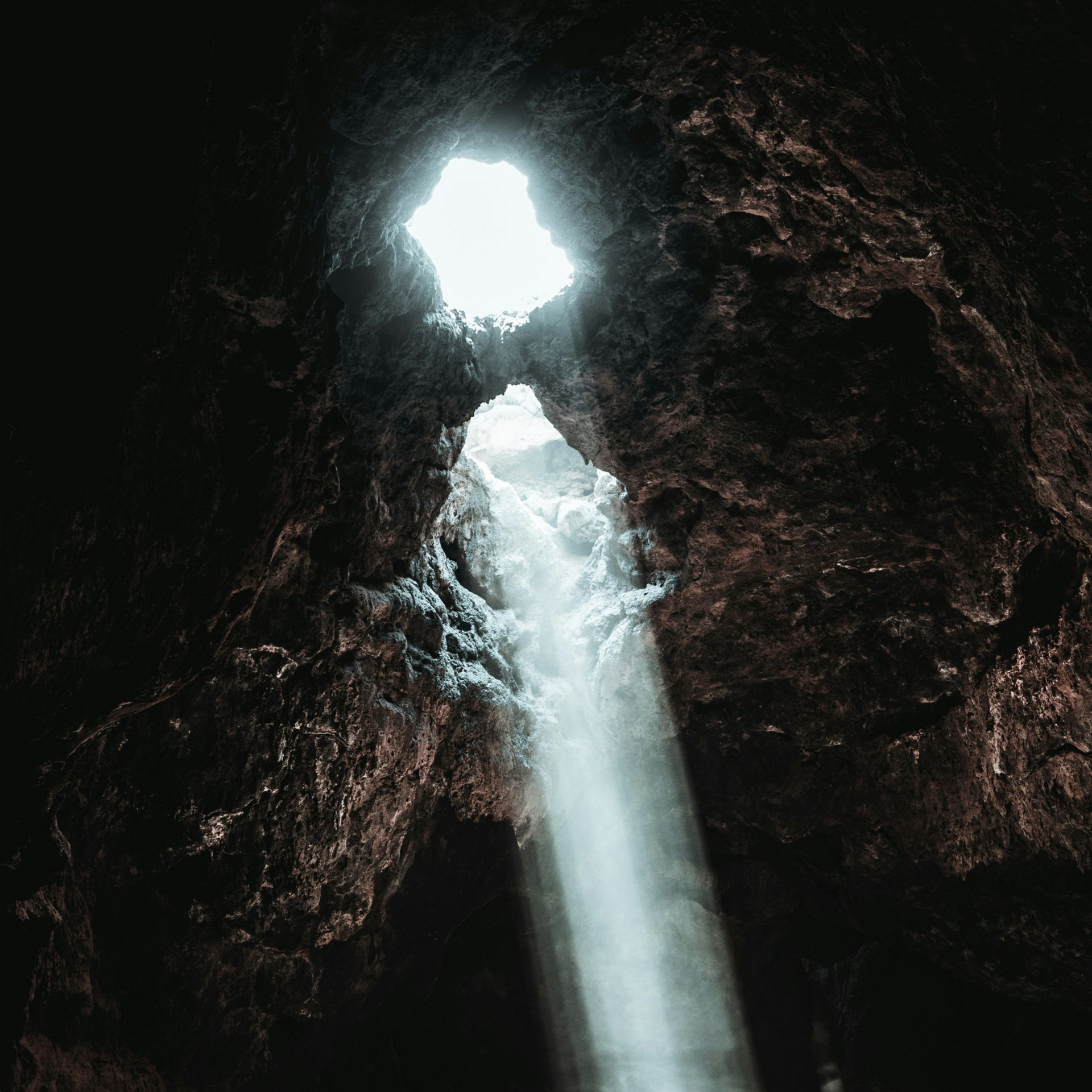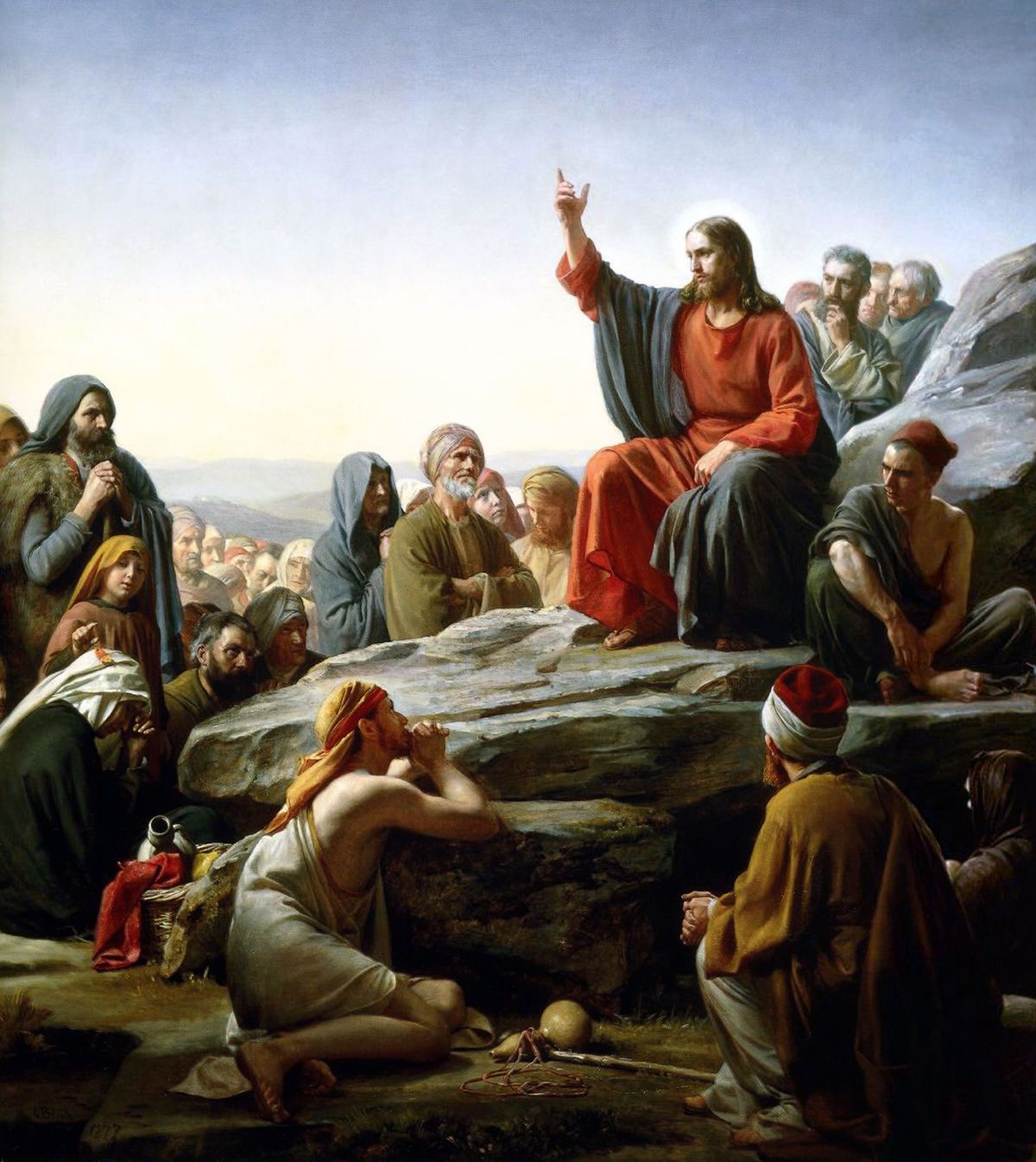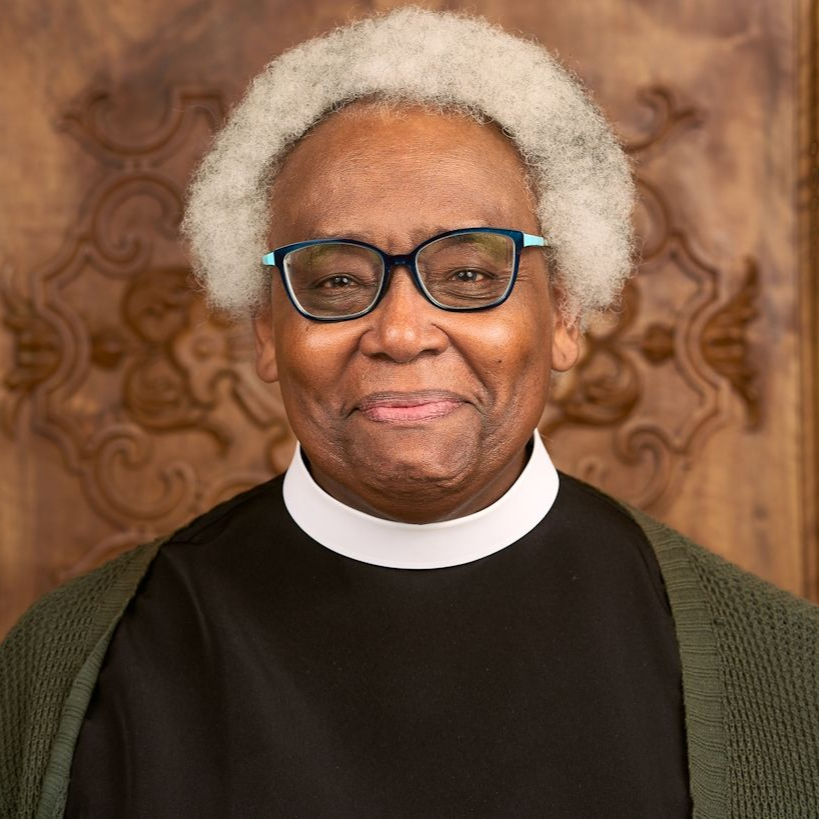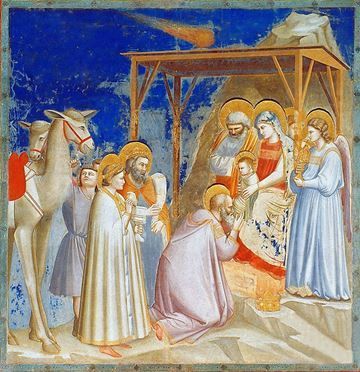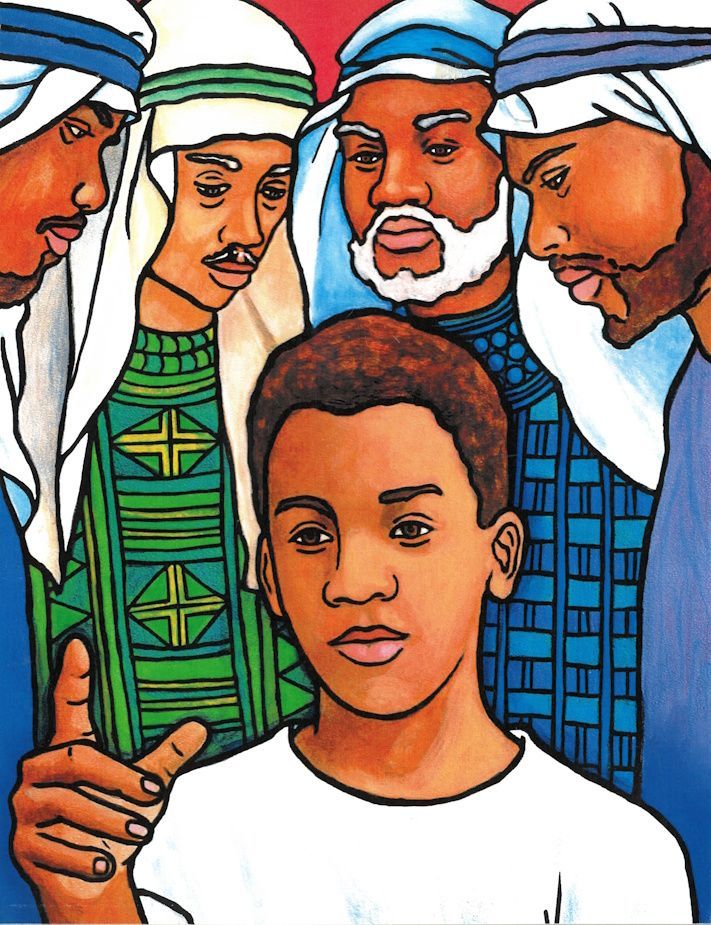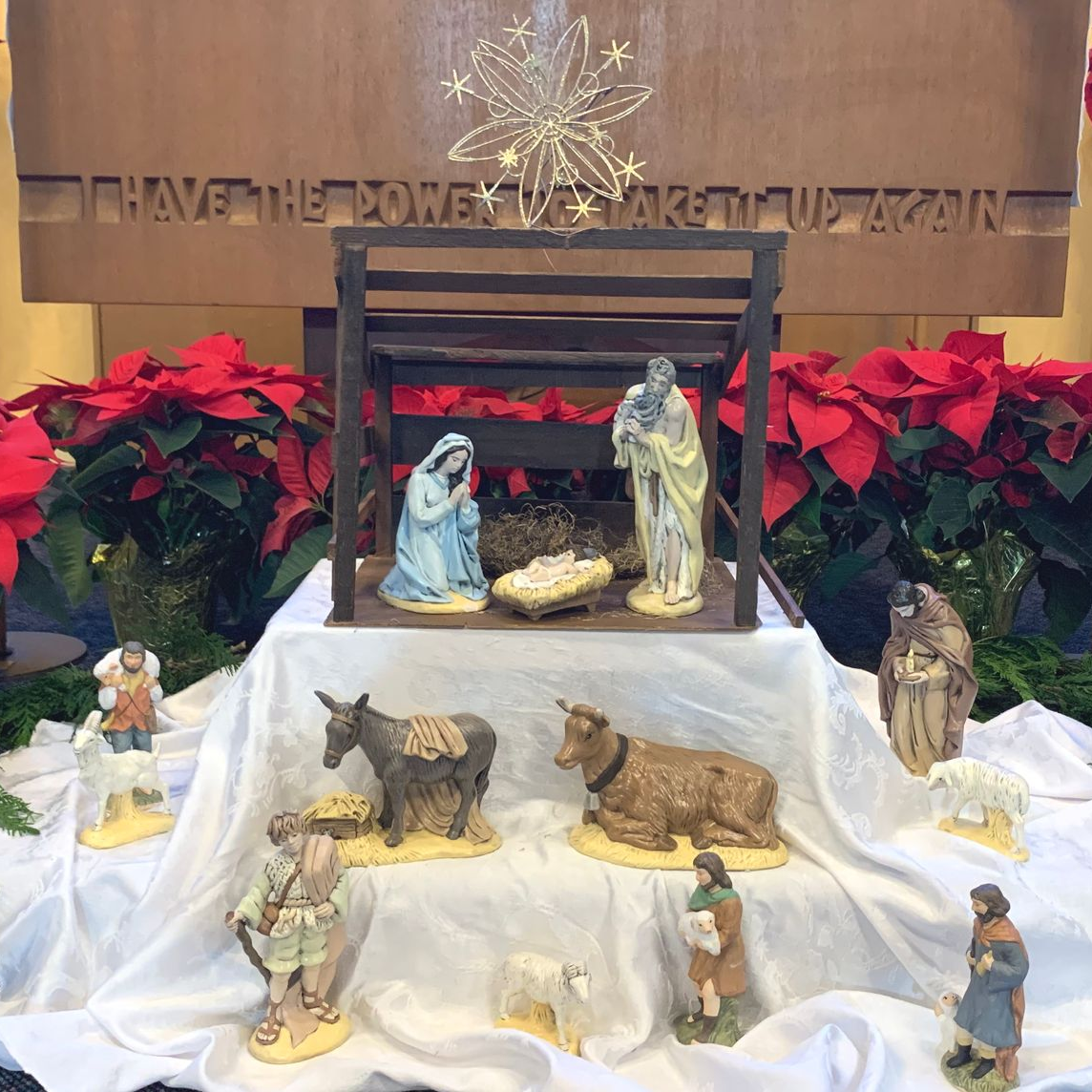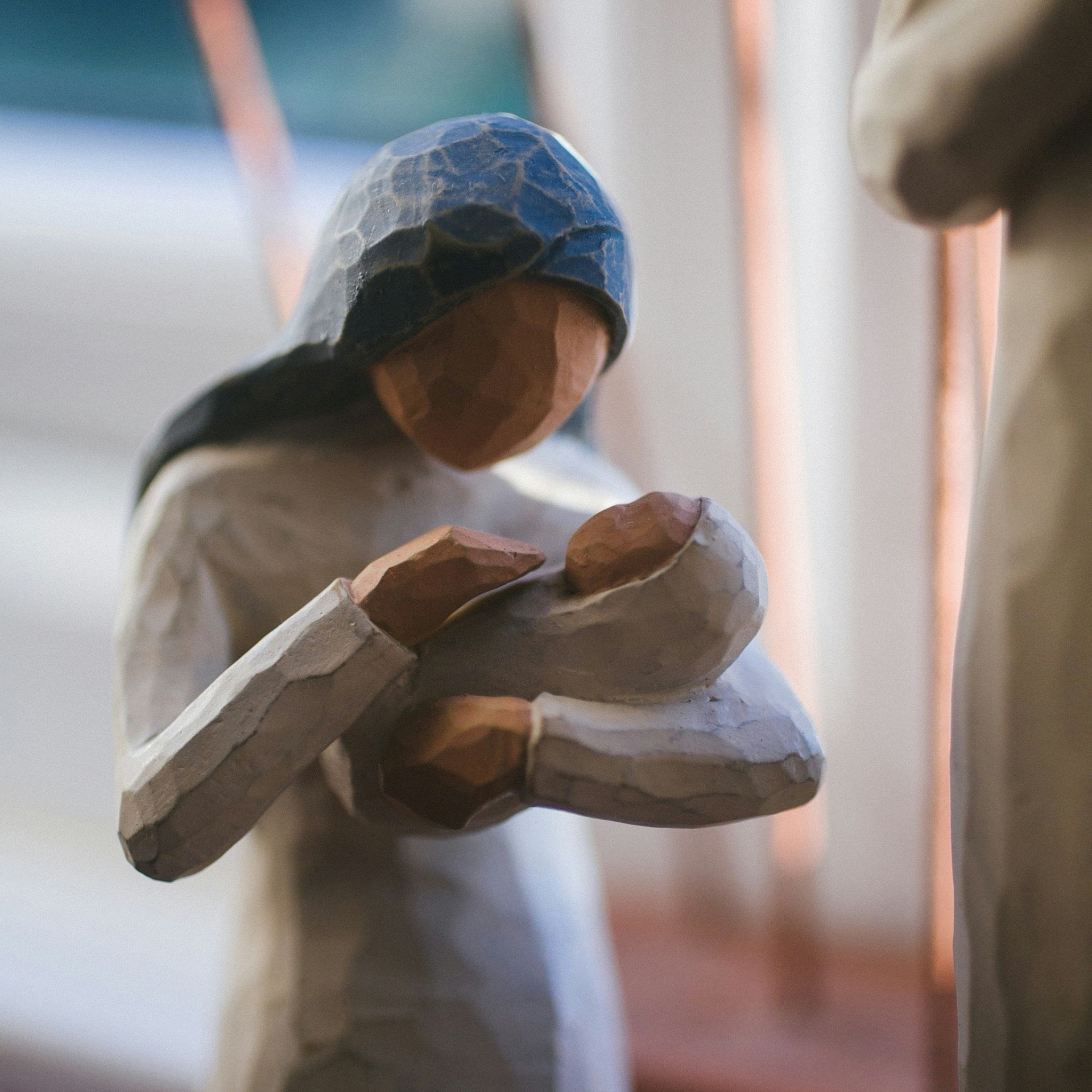The Nicene Creed (Annotated)
In the Nicene Creed, composed in the 4th century, every word counts.
Pastor Josh here: I wrote these annotations to help teach the 4th-century Nicene Creed to a high school confirmation class a few years ago. We also used it in Week 4 of our class "Why Christian? Why Episcopalian?" I had fun writing it, and I commend it to you. Hopefully it will leave you with more questions than answers.
We believe in (set our hearts on) one God (not zero, not two or more),
the Father (not the dictator), the Almighty (not merely a local strongman),
maker (not merely boss) of heaven and earth (the omniverse),
of all that is, seen and unseen (so yes, both angels and dark matter are included).
We believe in (set our hearts on) one (and only one) Lord (person to whom we owe allegiance, so no emperors, kings, or presidents can hold this spot), Jesus Christ (the man, the one anointed by God),
the only (not merely first) Son (not hireling) of God,
eternally begotten of the Father (always having existed),
God from God (he is also God), Light from Light (yet not created like light),
true God from true God (even more poetic language about how much he is actually God),
begotten, not made (in case that wasn’t clear two lines ago, and take that, Arius!),
of one Being with the Father (not a separate being with different intentions and actions—ahem, Arius!).
Through him all things were made (and without him nothing was made—and yes, this is still Jesus we’re talking about, so stop for a moment and try to wrap your brain around that).
For us (for you and me today, not just for long-gone ancient people) and for our salvation (that which is eternally beneficial for us)
he came down from heaven (he emptied himself of the obvious trappings of divinity so he could hang out with us for a while and yet somehow remained God):
by the power of the Holy Spirit (which is also God)
he became incarnate (made of flesh and blood and bone, which means he breastfed and spit up and peed and pooped and ran and played and had to cut his hair and his toenails and went through puberty and grew hair in odd places and got hungry and slept and laughed and cried) from the Virgin Mary (this one particular Jewish woman, through her very body, not just magically appearing in some other way—and by the way, the whole “virgin” thing really isn’t supposed to be about some supposed sense of sexual purity, but rather stresses God’s command over all the rules of the universe),
and was made man (“one of us—just a slob like one of us”—and more importantly than “man,” “human.” He just happened to be male).
For our sake (not just because he was bored one Friday, but because in some mysterious way this would fundamentally repair our relationship to God once and for all) he was crucified under Pontius Pilate (that specific Roman governor at that specific point in history—look him up on Wikipedia);
he suffered death (he didn’t just seem to die) and was buried (yup, really, really dead, not in a coma, not mostly dead like Westley in Miracle Max’s hut or Harry Potter at King’s Cross Station).
On the third day (the next Sunday morning, so a day and a half later) he rose again (wait, what? How?!? I guess the giver of life can die but can’t stay dead)
in accordance with the Scriptures (not “as predicted by the Scriptures,” but rather, in keeping with the ongoing narrative of salvation history, but this part is open to all sorts of interpretation, which is why not all Jews became Christians);
he ascended into heaven (obviously, because I don’t see him still hanging around in a mystical, multi-dimensional body with nail and spear holes in it)
and is seated (established, not just resting) at the right hand (as the living action-doer) of the Father (not the dictator).
He will come again (future tense or eternal tense?) in glory (like in Daniel 7, not like in Luke 1) to judge (to assess with love and grace, which may actually hurt like hell but needs to happen to open up an eternal path of growth) the living and the dead (everyone who has ever lived),
and his kingdom (spoken of figuratively and eternally better than any monarchy) will have no end (not just on a timeline into the future, but expanding to fill up the omniverse).
We believe in (set our hearts on) the Holy Spirit (mentioned above), the Lord (still only one, because this is still the same being as the Father and the Son, just somehow a third person), the giver of life (not just someone who shows up occasionally or as requested, but who holds all our souls in life in every moment),
who proceeds (is always coming into being) from the Father (see John 14:16) and the Son (see John 20:22, but note that this particular phrase has only ever been used in the West, and the Episcopal Church plans to do away with it gradually to get on the same theological page as our Eastern Orthodox siblings—so note that even the Nicene Creed has its squishy parts that people don’t agree on after all these centuries).
With the Father and the Son (as a Trinity) he (not really a he) is worshiped and glorified (by us, but also by angels and archangels and all the heavenly beings).
He (not specifically a “he”—and not kidding, because this section is gender-neutral in both Latin and Greek, so you might as well use singular “they,” but “she” would also work just fine, to be honest) has spoken through the Prophets (so the Holy Spirit was not late to the party, but has been part of this project all along).
We believe in (set our hearts on) one (not many, and not just our own Christian denomination) holy (set apart by God for a special purpose) catholic (worldwide and universal, nothing to do with the Pope) and apostolic (passed down through the generations through the laying on of hands) Church (a group of people, not a building).
We acknowledge (recognize as holy and legit) one baptism (no repeat performances necessary) for the forgiveness of sins (which is weird, because how does this work exactly? Did we choose baptism, or did God choose us through baptism? And didn’t Jesus already take care of this anyway? So does baptism forgive our sins, or does it serve primarily as a public proclamation of what’s already been done for us?).
We look (watch, wait, hope) for the resurrection of the dead (of the body, as the Apostles’ Creed puts it, not just the soul!—as an indication that all things are drawing to their conclusion, though there’s no need to assume we’ll see it happen on this side of death),
and the life of the world to come (the perfection of all of God’s plans and dreams in eternal joy, and the restoration and redemption of all good creations that have ever been). Amen (Make it so, God!).


